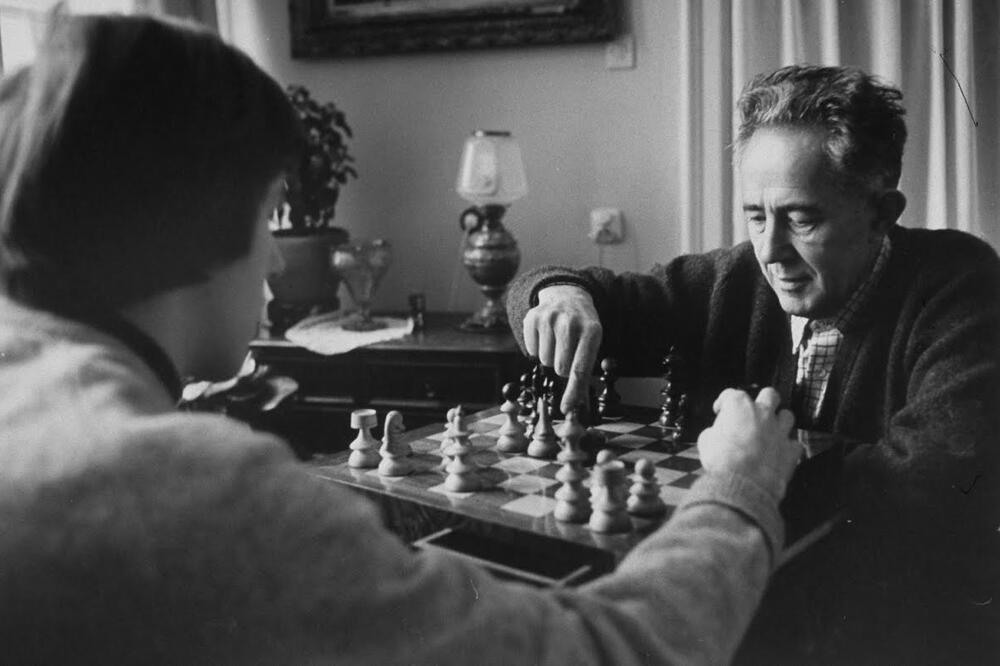The geography of this novel is reduced primarily to the area of the Montenegrin areas/tribes of Morača and Vasojević, with frequent comments and descriptions of events from the surrounding Montenegrin areas. In addition to being his hometown, Đilas obviously chose that area as a "pepper" sample of the characterology that Cvijić defined as violent. It is noticeable that the change of setting in the second and third parts of the novel also develops the contrast between the mental characteristics of the space that the novel deals with. The Montagnard expression of the Dinaric virtues, in which those eagle instincts so often elevate man's thoughts above earthly and daily trivia, is opposed to the valley-basin tameness of Polimlje and Sandžak - where the clink of money is constantly heard in craft shops, inns and bazaars, where thoughts about arms and glory suppressed by the laws of the canter and magaz. All of this, although painted in distinct local colors, is contextualized in Besudna Zemlja into a generally understandable story about the paradoxes of a space of strong colors and smells, undiluted passions and uncorrected urges. Intriguing events, colorful characters, ambivalent relationships between them, in this novel grow from a universal mythic and archetypal background, building a picture of a world tormented by history, which, above all, was rendered senseless by that devastation. Because the environment in which the characters of this novel move is an environment that persistently drives people to survive. The hellish embrace of war and hunger consumes the human substance in people, even when they are in the tight grip of ancestral laws and covenants, as Montenegrins have been for centuries. And there, on the trail of Abbot Stefan's rhetorical question - "What is a man, and must he be a man!", which he engraves in his angry monologue into the minds of the sleeping heroes while they all dream of the winged Obilić flying over the Cetinje field, perhaps the most universal message of Landless Land, and it could be reduced to the question - how much can a man be a man in inhuman conditions, which are not an incident but his constant experience?
When read in this way, Besudna zemlja becomes a kind of polemical reading directed towards tradition, from which the even more pessimistic verse - "You are destined to bear the cross" persistently echoes. That fatalistic burden will remain on the shoulders of Montenegrins even when their lives are conditioned less by the warrior and patriarchal code, and more by national and ideological turmoil. History rarely gave the Montenegrin a peacetime break in which he could live life without proving his commitment to great goals. The awareness of overcoming that epic codification of life awakens in those smarter Montenegrins after big and bloody battles - such as the battles on Grahovac, Fundina and Vučje dol - which are the pinnacles of Montenegrin military history, but also battles whose epilogues showed that the time of some different options other than those offered by endless warfare. That is why, in the Memorandum of the Montenegrin Government, addressed to the participants of the Berlin Congress, the great powers will be asked to annex those territories that will enable Montenegro to, as emphasized in that document, "turn from a military camp into a country capable of living from its own resources."
Although after the Berlin Congress, Montenegro will be quite relieved of that fate of a "military camp", the more than modest economy of its territory, defined by the great powers, will not allow it to become a country that lives on its own resources. Shifts will occur in the institutional organization of the state, which will mostly be structured according to the measure of the only partially emancipatory ruler - King Nikola.
However, already at the beginning of the First World War in Montenegro, the great story of warfare will come to the fore again, and with it all those high levies that force people to relegate their own existence to the background. War, occupation, forced drowning in a new kingdom, will make the life of ordinary people once again find itself in the grindstone of history, thus opening up space for new conflicts, survival and fighting. In Besudna Zemlja, that Montenegrin fate is constantly present, that haunting of the "stormy hill" where there is no respite from the creation of history and where hardly anyone cares about the small circles of human life.
That's why in this novel only occasionally a ray of light breaks through the heavy darkness of life, the duration of which is almost completely devoid of comfort, satiety and any fragrances. And when life persistently takes place on the edges of existential endurance, then man is largely amnestied from falling into futility. Because a country that lived most of its history as a "military camp" must also be a fateless country at some historical stages. Milovan Đilas, who crossed the paths and detours of a stormy epoch, ending up as an outcast, is someone who was very experienced in problematizing those inhumane impositions.
Bonus video:





